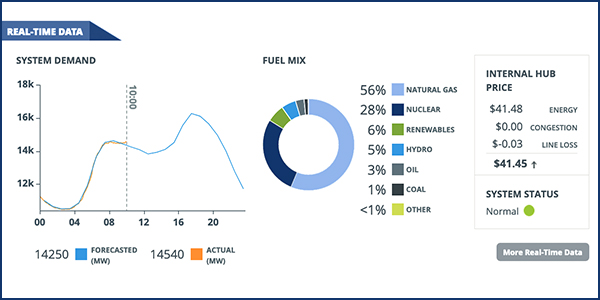By Michael Kuser
Seven U.S. senators from New England on Monday urged ISO-NE to “return to the table with stakeholders” and more closely align its fuel security initiative with state policies seeking to speed the transition to renewable energy resources.
In a letter to the RTO, the senators criticized ISO-NE for “pursuing a patchwork of market reforms aimed at preserving the status quo of a fossil fuel-centered resource mix” and having “charted its own path forward and pursued unpopular initiatives” such as Competitive Auctions with Sponsored Policy Resources (CASPR) and the Inventoried Energy Program.
“ISO-NE should heed the call of the states, electricity generators and others to expand the dialogue beyond the current, too narrow fuel-security reforms to tackle the region’s pressing need to achieve the states’ ambitious climate goals,” they said. “To achieve these goals, ISO-NE should dedicate significant planning and markets resources in the coming months to evaluate, help develop and propose new electricity market structures that recognize, facilitate and are compatible with state policies.”
The signatories to the letter were Richard Blumenthal (D-Conn.); Ed Markey (D-Mass.); Chris Murphy (D-Conn.); Jack Reed (D-R.I.); Bernie Sanders (I-Vt.); Elizabeth Warren (D-Mass.); and Sheldon Whitehouse (D-R.I.).
State Climate Priorities
Dan Dolan, president of the New England Power Generators Association (NEPGA), said the senators’ correspondence follows two similar letters his organization has sent to ISO-NE in the last year.
“One area where we disagree with the senators’ letter, however, is … NEPGA believes that CASPR provides a viable pathway to integrate state-contracted electricity projects, while maintaining reliable though competitive markets,” Dolan said.
He said there are two important parts to reforming the region’s competitive electricity market to meet the needs of states, consumers and reliability criteria.
“First, state climate priorities should be integrated into the market through a meaningful price on carbon dioxide emissions on an economy-wide basis,” Dolan said. “This will both help support investments in clean electricity supplies, while also helping to drive needed electrification of the transportation and heating sectors, which together account for over two-thirds of all emissions in New England.
“Second, with large-scale state contracts driving increases in resources like offshore wind, the markets must be reformed to account for the changing nature of the electricity supply mix. The existing market design does not sufficiently value the performance that will be required to maintain reliability and resilience,” he said.
Collaborative Tradition
ISO-NE spokesperson Matt Kakley countered that the RTO is already heading in the direction advocated by the senators, including a move to allocate staff time and resources next year for stakeholder discussions on the future of the region’s power system — a measure set out in ISO-NE’s Annual Work Plan for 2020 presented to stakeholders in September.
“Over the past decade, ISO New England has worked tirelessly to incorporate renewable resources into system operations, short- and long-term planning procedures, and the region’s wholesale markets,” Kakley told RTO Insider. “These efforts have allowed the region to add thousands of megawatts of renewable energy, while maintaining reliable system operations, and have set New England up well to accommodate future renewable energy development.”
Kakley said those efforts required “countless hours” of stakeholder discussion “leveraging the region’s strong history of collaboration.”




